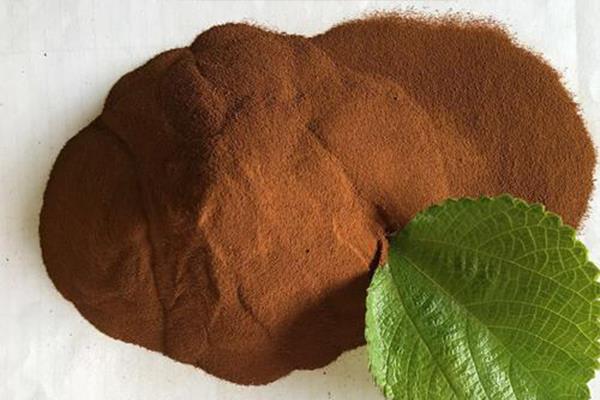
2020-11-17
Potassium fulvic acid, also known as amino acid powder, fulvic acid powder, biochemical potassium fulvic acid, sugar yeast powder, etc., is a by-product in the process of sugar production yeast, in powder form. The potassium fulvic acid sold by our company is completely soluble in Brown powder of water (mesh about 150), a little caramel taste. Other main indicators: organic matter content not less than 60, fulvic acid content not less than 50, humic acid content not less than 30, protein content about 20 (The total content of amino acids is about 8). Humic acid is the main component of humic substances with complex chemical structure. The structure and physical and chemical properties determine the important role of ecological restoration. Corrosive acids are divided into two types: light corrosive acids (yellow corrosive acids) and heavy corrosive acids (tea corrosive acids, black corrosive acids). The former is mainly produced by sugar fermentation yeast, and the latter Mainly produced by the coal industry. The remediation effect of corrosive acid on soil contaminated with heavy metals and toxic organic pollutants mainly includes the adsorption and precipitation of heavy metals and organic matter, oxidation recovery, and corrosive acid can promote the decomposition of organic pollutants by soil microorganisms.
Practice has proved that the effect of potassium fulvic acid on soil remediation and improvement is obvious
1. Corrosive acid changes the form of heavy metals in polluted soil.
The accumulation and enrichment of heavy metals have brought a lot of pressure to the soil, and their forms in the soil are mostly in the combined state or in the combined state. The heavy metal ions are not easily absorbed by crops, and the crops are not easily polluted by heavy metals.
Light humic acid (fulvic acid) has a low molecular weight, which is beneficial to the activation, compatibilization, and attraction of heavy metals. In the experiment, a solution containing fulvic acid was used to pour the hyperaccumulative plant nephron fern (hyperaccumulative plant is a Phytic acid (including tea corrosive acid, black corrosive acid), which is large in molecule, has the effect of recovery and adsorption and fixation of heavy metals, and can Reduce the availability of heavy metals such as cadmium, mercury, lead, etc.

2. Humic acid reduces the toxicity of organic matter in polluted soil.
Another destroyer of soil is organic pollutants, the sources are mainly petroleum and cracked products, pesticides, organic synthetic products (plastic films, etc.) Rotten phytic acid increases the adsorption and stability of organic matter, pollutants are fixed in the soil and lose activity, Guided reactive radical photolysis, chemical decomposition of organic matter
3. Corrosive acid can be used for the management of saline-alkali land where the groundwater level is below 1 meter.
Potassium fulvate can be combined with calcium and iron ions of other additives to promote the formation of large-grained aggregates in the surface 2030cm fine-grained soil, reduce the capillary phenomenon of fine-grained soil, and greatly reduce the evaporative water carrying salt to the surface and the gradual accumulation of salt responsibility. , is currently the most effective way to thoroughly control saline-alkali land from the source.
Previous: No Information
下一条: The important role of humic acid as water retention agent in agriculture